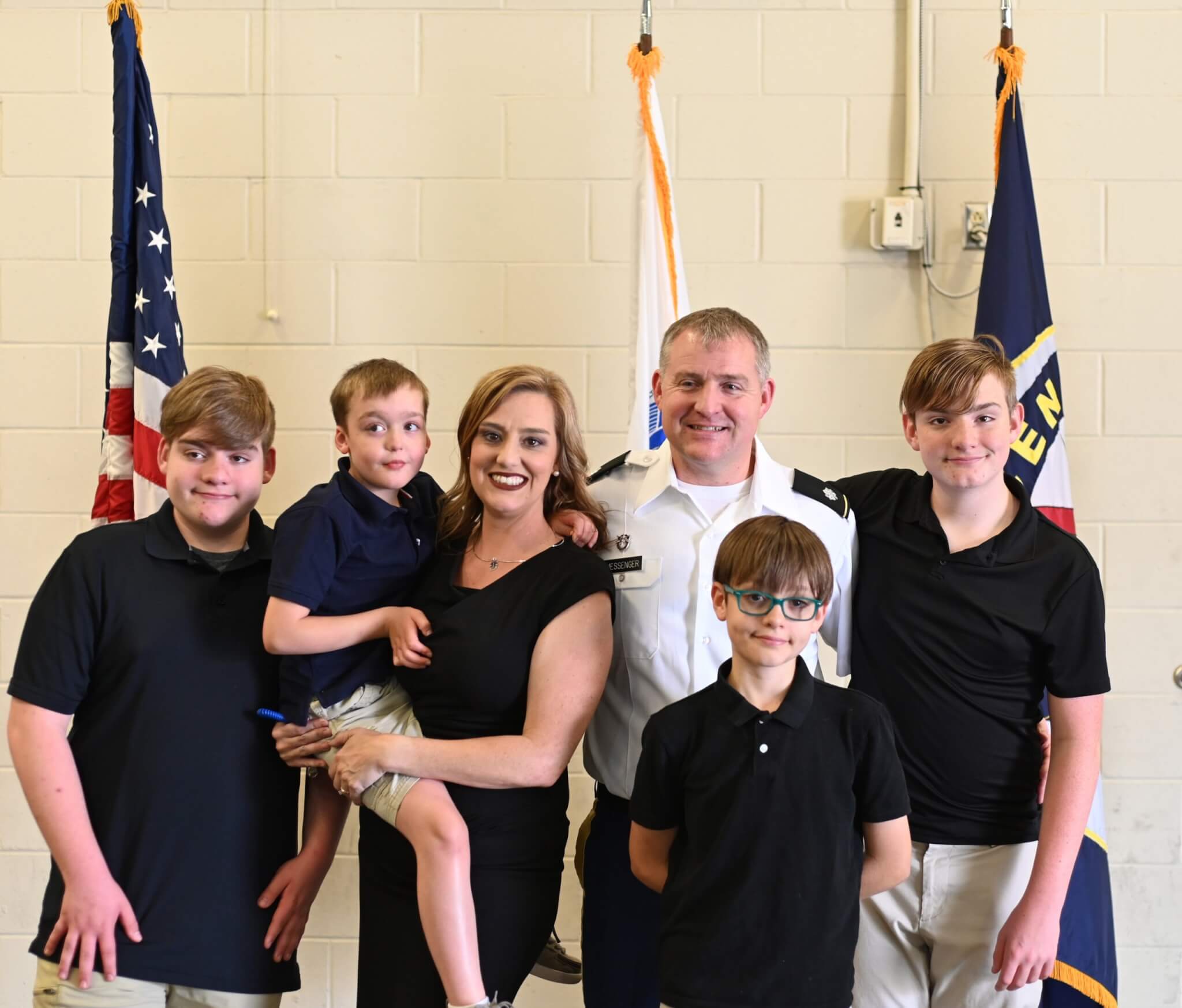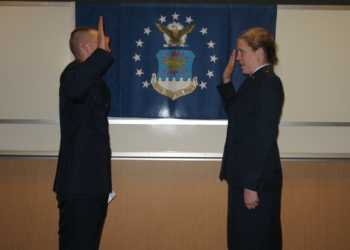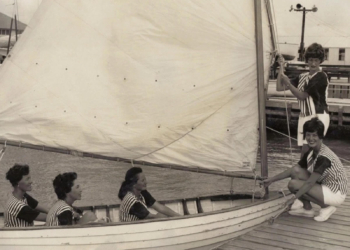When Army Lt. Col. Tony Messenger and his wife, Amy Messenger, set out to create a space where drill sergeants at Fort Jackson, South Carolina, could spend time with their families, it wasn’t because they were hoping to win a volunteer of the year award. They just wanted to help.
“Every unit that we go to, and every unit I am blessed to be a part of and lead, it’s family,” said Tony, who commanded the 1st Battalion, 13th Infantry Regiment while stationed at Fort Jackson and now commands the 3rd Squadron, 2nd Security Force Assistance Brigade. “So when you see a need for your family, it’s inherent to help fill the need.”
The initial idea was simple, but the impact has been significant, the Messengers said. Basic training units often struggle with morale due to a high operational tempo that keeps drill sergeants from seeing their families for weeks at a time, with extra stress in the first 72 hours, they said. So why not turn a conference room into a place where families can share a meal or spend time together during those first busy days?
“We set up a time to link up with your soldier for a short period of time, and then we have a potluck every night,” he said. “That was really the first thing we did, and it was called ‘The First 72-Hour Room.’”
RELATED: This military couple makes inclusivity their mission
The Messengers and their four sons – Connor, 18, Liam, 16, Colin, 14, and Keegan, 11 – were selected as the 2024 Association of the United States Army (AUSA) Volunteer Family of the Year for their work at Fort Jackson. They were honored in October during the association’s annual conference in Washington, D.C. The family was previously named Fort Jackson Family of the Year.
The First 72-Hour Room was just the beginning of their efforts, Amy said. The conference room was a great place for a breakfast meet-up, but what about helping soldiers find time with their families during the rest of the training cycle? And how could they better support drill sergeants who were also new mothers?
Over the next several months, the family worked together to create a permanent family connection area within the battalion’s footprint. A unit spouse who is a doula volunteered to help transform the unit’s lactation room into a comfortable, usable space.
“It was just things like that to connect the families,” Amy said. “When the kids are able to say, ‘Hey, I want to see daddy,’ and then have a space to make those connections, and then the kids come in and see what dad is doing, and they can go to dad’s work and stuff like — that is an important thing.”
Volunteering was also a family affair, Amy said. In addition to regularly helping her cook 20 pounds of bacon for unit breakfasts, the Messenger sons helped develop ways to build support for drill sergeant families in the civilian community near Fort Jackson.
“We brought all 130 teachers, administrators, and everybody onto Fort Jackson, and we took them through a day in the life of a drill sergeant,” she said.
While their volunteer efforts may sound extraordinary, the Messengers said they don’t see it that way. Their youngest son, Keegan, was born with a rare medical condition that requires constant attention. There have been times when they’ve relied heavily on the Army community for help, they said. Giving back is the least they can do.
“Community is so critically important right now,” Tony said. “Being able to give back to these folks and have a positive influence on people — I just think it’s critical. Call it volunteering; I just think it’s the right thing to do. It’s part of being a human.”
Read comments








































